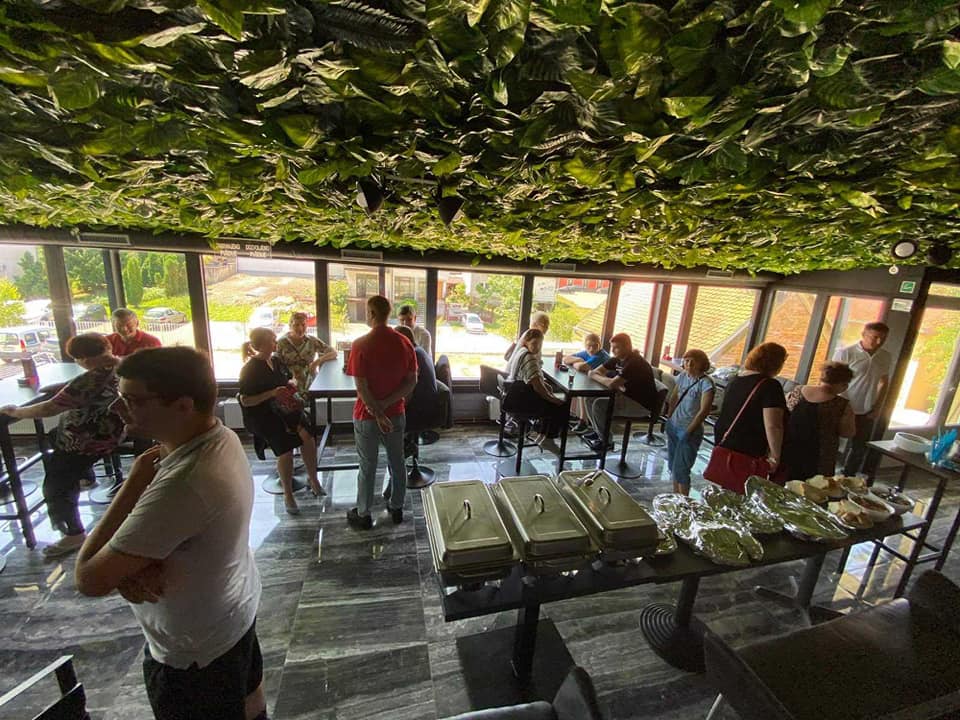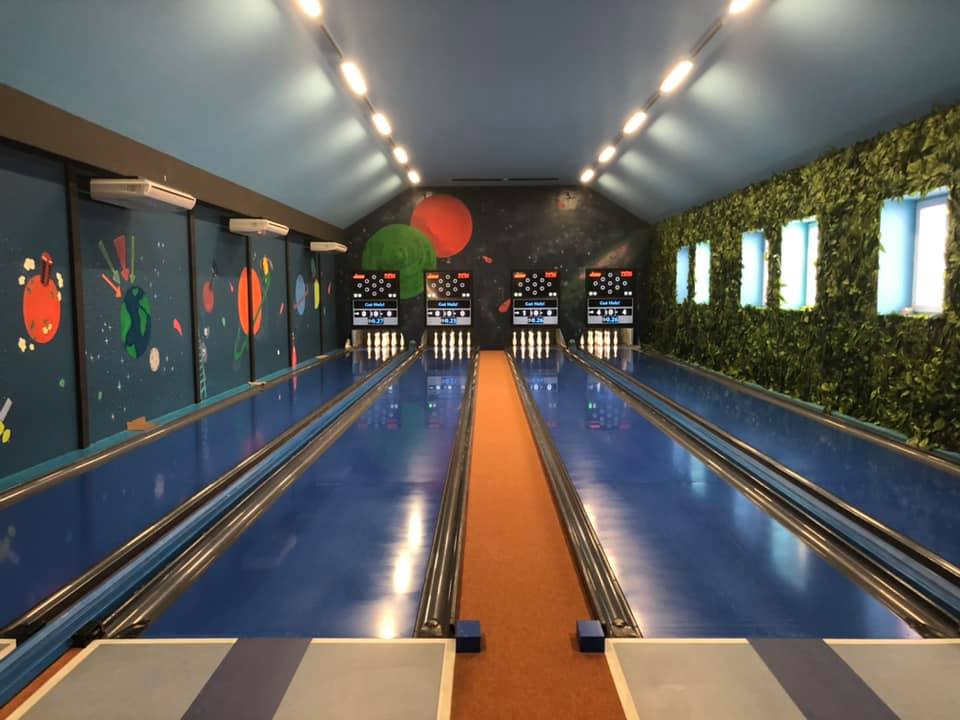July 7, 2020 - Total Croatia News is 5 years old today. It has been quite a journey - some reflections on how TCN started and where it is going.
Looking back, I can't believe how naive I was.
To think that I could run a national news portal in English, covering the whole of Croatia, when my knowledge of Croatia barely extended to more than every inch of the island of Hvar, Diocletian's Palace and Zagreb train station.
I am exaggerating a little, but not so much.
I don't think I have ever written the story of how TCN got started. Back in 2015, I was writing for an international Google News website, and I was reasonably well read, sometimes making the top 10 writers of the week. Many of my articles got 1-2k Facebook likes, which came with a bonus, so life was good.
And then one day, I got fired suddenly, told that my articles were not that interesting or relevant (despite those bonuses for lots of clicks). The fact that an article on Adriatic oil drilling from the perspective of environmental protestors I had written was unpublished minutes before my termination email made me speculate as to the reason. Whatever the reason, I was no longer a writer for the site.
"Why don't you start your own news website?" asked a friend and long-time supporter. "There are some English sites about Croatia, but none focused on daily news."
Why not indeed? And so in I waded, having no real clue about Croatian realities or politics, beyond my Hvar tourism bubble.
I wanted to make a splash on the first day and target the diaspora, a natural readership market for those with love for Croatia not matched by their linguistic abilities. How better to impress than an interview with the Croatian Minister of Foreign Affairs, I mused - that would show how serious I was.
And if the said foreign minister had been more to the right than Vesna Pusic, I might have felt a warmer embrace from the likes of Sydney and Melbourne.
It was an inauspicious start, and one about to get worse. One of my main writers got quite seriously ill soon after we launched (thankfully more than fine now) and it wasn't long before the other hopped on a plane to Athens and was never heard of again. Add to that the unforgiving Croatian army of keyboard warriors, and it was clear that I had taken on more than I could handle.
But then, slowly, things began to change. A core team began to develop - Lauren, Dani and Iva - who have now been at TCN for four years, as well as the rock that is Vedran, provided not only stability but much more knowledge about Croatia, how it worked and the pitfalls to avoid. With their help and guidance, TCN took shape. Report the politics, but keep out of the politics, give people what they want in terms of information, and celebrate the little guy.
Only 6 weeks before the launch of TCN, and some 12 years after I moved to Croatia permanently did I hear the word 'uhljeb' for the first time - in an Index news title with my name in it.
And so my view of Croatia changed now that I had crossed the Rubicon. For my new Croatian reality could not return to the old - A Tale of Two Croatias: Before and After the Uhljeb Discovery
My personal journey of discovery continued and I finally made my peace with Croatia, once I had got to Stage 3 - The 3 Stages of Learning for Foreigners in Croatia: Love, Hate & Nirvana.
Once I understood that the best way to approach Uhljebistan is to treat it as an Uhljleb tax necessary in the most beautiful country with the best lifestyle in Europe, in the same way an alcoholic in Norway absorbs the high alcohol tax when he could drink cheaper elsewhere, I was free. Pay the tax, surround yourself with positive people. And accept the things you cannot change, have the courage to change the things you can, and have the wisdom to know the difference.
And with that mindset, Croatia really is the most incredible place on the planet.
Here are some random thoughts and things I have learned so far on this five-year journey.
1. If you want to be liked by everyone, don't start a news portal in English in Croatia.
2. If you can't handle constant abuse, don't start a news portal in English in Croatia.
3. Croatians, especially the diaspora, are a very tough audience. They can love you for a while, but one wrong word and that all changes.
4. The Croatian diaspora is VERY diverse. There are those who rarely visit since their grandparents emigrated from 1945 on who are the most patriotic (although many don't speak the language) who have the biggest opinions about Croatia today, as well as a growing number of 2nd and 3rd generation diaspora who are realising perhaps the daily experiences of a foreigner living the Croatian reality day to day is a better indicator of the realities in Croatia today.
5. You will never please everyone, and everything will descend to Ustase v Partizani once enough comments get going.
6. Running a foreign portal in Croatia is fertile ground for the conspiracy theories. I have forgotten who I am currently spying for, as there have been so many agencies I am allegedly working with. Ditto, the dark forces funding TCN (I wish!).
7. Croatia has SO many incredible people doing incredible things. SO many. They mostly exist in their own bubbles once they pay their Uhljeb tax. But those bubbles are starting to connect, and that is why I am very hopeful for Croatia. Initiatives such as Glas Poduzetnika are just the start of the road to Croatia 2.0.
8. There are only really two problems in Croatia today - the system and the mindset. If we can go around the system to inject the mindset with positivity, one story at a time, then the system may change. This is one of the things we will be addressing in our new CROMADS project, which will go live in a month.
9. There is also a third problem, which I call the Death of Hope. There must be a million people in Croatia who desperately want change, but no longer believe it is possible. There are probably another half a million Croatians who feel the same way, and have voiced their protest - the protest of emigration on the streets of Dublin, Frankfurt and Stockholm. If we can get that million to believe that change is coming, it will.
10. The two viruses of transparency and technology are getting stronger, two of the best weapons that Croatia 2.0 has. Corona has done a lot of damage, but it has also given Croatia a real opportunity for change.
11. Croatia IS changing, and Croatia 2.0 IS around the corner. It is not a matter of if, but when.
The last five years have taken me to every corner of this incredible country, and it has given me authentic experiences a Manchester city boy could only dream of, introduced me to characters who are books on their own.
The future of Croatia is incredibly bright, I believe that more strongly than ever, and change is coming.
My heartfelt thanks to the 158 contributors for TCN over the last five years, as well as the huge support from our loyal readers from all over the world. I had no idea what I was doing five years ago when I started Total Croatia News, and I am not sure I am any the wiser today, but somehow it feels that we are going in the right direction.
Thanks for your company in the last five years, and I hope you will join the TCN team for the next five years and beyond.
.




